第71章
Forty years ago Mr.Huxley, in his essay on "The School Boards: What They Can Do, and What They May Do," laid a broad foundation for thinking at this point, and his words bear quoting at some length: "I have always been strongly in favor of secular education, in the sense of education without theology; but I must confess I have been no less seriously perplexed to know by what practical measures the religious feeling, which is the essential basis of conduct, was to be kept up, in the present utterly chaotic state of opinion on these matters, without the use of the Bible.The pagan moralists lack life and color, and even the noble stoic, Marcus Aurelius Antoninus, is too high and refined for an ordinary child.Take the Bible as a whole; make the severest deductions which fair criticism can dictate for shortcomings and positive errors; eliminate, as a sensible lay teacher would do if left to himself, all that is not desirable for children to occupy themselves with; and there still remains in this old literature a vast residuum of moral beauty and grandeur.And then consider the great historical fact that, for three centuries, this Book has been woven into the life of all that is best and noblest in English history; that it has become the national epic of Britain, and is as familiar to noble and simple, from John-o'-Groat's House to Land's End, as Dante and Tasso once were to the Italians; that it is written in the noblest and purest English, and abounds in exquisite beauties of mere literary form; and, finally, that it forbids the veriest hind who never left his village to be ignorant of the existence of other countries and other civilizations, and of a great past, stretching back to the furthest limits of the oldest nations of the world.By the study of what other book could children be so much humanized and made to feel that each figure in that vast historical procession fills, like themselves, but a momentary space in the interval between two eternities; and earns the blessings or the curses of all time, according to its effort to do good and hate evil, even as they also are earning their payment for theirwork? On the whole, then, I am in favor of reading the Bible, with such grammatical, geographical, and historical explanations by a lay teacher as may be needful, with rigid exclusion of any further theological teaching than that contained in the Bible itself." Mr.Huxley is an Englishman, though, as Professor Moulton says, "We divide him between England and America." But Professor Moulton himself is very urgent in this same matter.If the classics of Greece and Rome are in the nature of ancestral literature, an equal position belongs to the literature of the Bible."If our intellect and imagination have been formed by Greece, have we not in similar fashion drawn our moral and emotional training from Hebrew thought?" It is one of the curiosities of our civilization that we are content to go for our liberal education to literatures which morally are at opposite poles from ourselves; literatures in which the most exalted tone is often an apotheosis of the sensuous, which degrade divinity, not only to the human level, but to the lowest level of humanity."It is surely good that our youth during the formative period should have displayed to them, in a literary dress as brilliant as that of Greek literature, a people dominated by an utter passion for righteousness, a people whose ideas of purity, of infinite good, of universal order, of faith in the irresistible downfall of moral evil, moved to a poetic passion as fervid and speech as musical as when Sappho sang of love or Eschylus thundered his deep notes of destiny."[1]